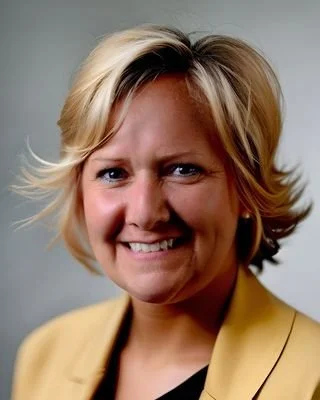
Personalized, Convenient and Secure Virtual Psychiatric Care
Welcome to Mae Mental Wellness.
Your mental health and well-being are our top priorities.
We are committed to providing compassionate, personalized care to help you navigate life's challenges, serving patients in Florida, Colorado, Montana, and New Hampshire.
Our team of board-certified psychiatric mental health nurse practitioners brings over 40 years of experience across a variety of nursing specialties.
Founded by Erin Lutchkus and Carol Milliken, Mae Mental Wellness offers a wide range of services, including virtual psychiatric care, medication management, and therapy for conditions such as depression, anxiety, bipolar disorder, ADHD, PTSD, and more.
At Mae Mental Wellness, we take a holistic approach to mental health. Recognizing that each individual’s journey is unique, we create a supportive, non-judgmental environment where you can feel safe and heard.
Our goal is to collaborate with you virtually* to develop a treatment plan tailored to your specific needs—empowering you to achieve better mental wellness and an improved quality of life.
Whether you’re seeking help for the first time or need ongoing support, Mae Mental Wellness is here to guide you.
*Most services are available via telehealth, though certain regulatory requirements may necessitate an in-person assessment. If this applies, your clinician will provide the necessary detailsTake the first step toward a healthier, happier you by reaching out today.
Access Our Patient Portal
Are you an existing patient? Access the Patient Portal to make payments.
Get mental health treatment from the comfort of your home—or anywhere!
At Mae Mental Wellness, we treat a variety of mental health conditions and offer testing and other services to meet our patients needs:
Anxiety Disorders
Attention Deficit Hyperactivity Disorder
Bipolar Disorder
Depressive Disorder
Obsessive Compulsive Disorder
Panic Disorders
Post-Partum Depression and Anxiety
Psychotic Disorders
Sleep-Wake Disorders
Trauma and Stressor-Related Disorders
See our services page for a complete list.
What Our Clients Are Saying
FAQs
-
We aim to offer ease of access to mental health care services throughout the states of Florida, New Hampshire, Colorado, and Montana via use of telepsychiatry. However, we do have office locations in the following cities:
FLORIDA:
West Palm Beach, FL 33411
NEW HAMPSHIRE:
Milford, NH 03055
COLORADO:
Denver, CO 80202
MONTANA:
Billings, MT 59102
-
All appointments are scheduled as telehealth appointments, unless otherwise requested or discussed.
-
Visit our insurance page to see our current in-network providers.
-
Visit the fees page to learn more about our self pay fees.
-
In addition to accepting insurance and credit cards, we also accept CareCredit.
-
Click here to visit our patient portal to make payments on any balances you owe. Financing is also available through CareCredit.
-
Mae Mental Wellness is not a crisis service. Call 911 if you or someone you know is in immediate danger or go to the nearest emergency room.
Other options:
988 SUICIDE AND CRISIS LIFELINE
The 988 Lifeline provides 24/7, free and confidential support for people in distress, prevention and crisis resources for you or your loved ones. Not affiliated with Mae Mental Wellness.
Text HOME to 741741 to reach a volunteer Crisis Counselor. Not affiliated with Mae Mental Wellness.




